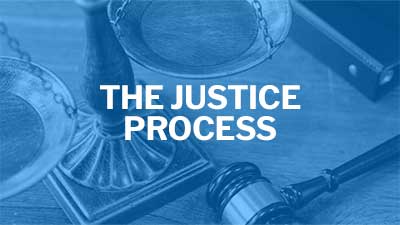Bail
The Purpose of bail in the Judicial Process

Bail plays a crucial role in the judicial system by ensuring that individuals accused of crimes can remain free while awaiting trial, provided they meet certain conditions. This system balances the presumption of innocence with the need to ensure court appearances and public safety.
The primary purpose of bail is to prevent unnecessary pretrial detention. Without it, individuals—many of whom may later be found not guilty—could spend weeks or months in jail before their case is resolved. Bail helps prevent jail overcrowding while allowing defendants to maintain employment, support their families, and prepare their legal defense.
When a person is arrested, they will appear before a judge in what is normally referred to as First Appearance. In many localities the state law is vague and requires the First Appearance “promptly.” In some states (such as Florida) the law requires the First Appearance to be within 24 hours of arrest. The entire court process will be covered in a later section but one of the purposes of the First Appearance is to establish bail.
Judges normally consider the following issues when setting bail:
- Severity of the crime
- Criminal history of the accused
- Risk of flight
- Community ties
- Public safety concerns
- Judicial discretion
- Jurisdictional schedules
- Defendant’s ability to pay
When setting bail judges will usually reach one of these outcomes:
- No bail, which means the accused will be in jail until the trial
- A set amount of bail (ex. $200,000)
- Released on own recognizance (ROR)
Even when bail is set or the defendant is released on ROR, the judge can impose additional conditions, such as travel restrictions, curfews, or mandatory check-ins with a pretrial services agency.
Once bail has been set the accused stays in jail until someone posts their bail. Bail can be posted in the following ways:
- Cash Bail – Cash bail requires payment of the full amount of bail. While not a viable option for many people, this form of bail will be fully refunded if the person shows up in court as ordered. (Sometimes, the court will take a small administrative fee.) If the defendant is convicted and ordered to pay fines and fees, the court may deduct these payments before returning the remainder of the bail money.
- Surety Bonds – Surety bonds involve purchasing a bond from a bail bond seller, who typically charges a nonrefundable premium of 10% of the amount of bail. To purchase a bond, the person pays the 10% upfront (which won’t be refunded) and puts up some form of collateral (such as a vehicle title, valuable personal property, or a land deed). For example, if the court sets bail at $200,000, a defendant can usually purchase a bail bond by paying $20,000 and putting up collateral valued at $200,000. If the defendant fails to appear in court, the bail bond seller must pay the court the full bail amount. If this happens bail bond agents will search for the person to bring them in (sometimes using bounty hunters). If the bail company is out any money, they can go after the signer, co-signer, or collateral.
If your loved one is charged with a serious crime, a bail bondsman may be your only choice. Bail bondsmen are easy to find. There are usually several located near a jail. Google searches will provide you with plenty of choices. The standard rate is 10% of the bail.
You do not need an attorney to bail someone out of jail. However, if you have already retained an attorney, discuss the bail options in detail with him. Typically each attorney works with several bondsmen and they can guide you to the best place.
You can appeal a judge’s decision regarding bail, including the amount set, but success is not guaranteed and depends on the specific circumstances and whether the judge failed to consider appropriate factors.
Time will be an important factor once bail is set. Your loved one will not be released until either bail or bond is posted. Working with a bondsman as soon as your loved one is being investigate can help speed up the process once they are arrested.
Remember that if your loved one does not show at any court appearance, you will forfeit any money you posted. You may also be responsible for the entire amount of bail by the bondsman.
Recently bail reform has been a big topic of debate. Critics argue that the traditional system disproportionately affects low-income individuals who cannot afford to pay, leading to extended jail stays. Some jurisdictions have adopted alternatives, such as supervised release or electronic monitoring, to ensure court compliance while addressing concerns of fairness.







